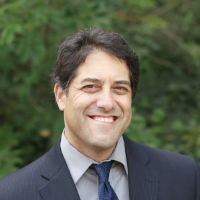Santa Cruz County, CA White Collar Crime Lawyers
Sponsored Law Firm
-
 x
x

Click For More Info:
-
Law Office of James Dal Bon
95 S Market St 3rd Fl San Jose, CA 95113 » view mapSanta Monica Employment Law Employment Representation
The Law Offices of James Dal Bon are poised to help during this difficult time, call today and speak with an Attorney right away.
800-913-2581  James Dal Bon San Jose, CA
James Dal Bon San Jose, CAAttorney At Law - CA, 1992
University of San Francisco, J.D. - 1991
 Frequently Asked Questions
Frequently Asked QuestionsEnter text from site here
 Contact UsEmail or Call 24/7
Contact UsEmail or Call 24/7Call today for your initial consultation.
Not enough matches for Santa Cruz White Collar Crime lawyer.
Below are all Santa Cruz lawyers.
John Thornton
Criminal, DUI-DWI, Domestic Violence & Neglect, White Collar Crime, Firearms
With over 30 years of legal experience, Attorney John W. Thornton has represented individuals accused of everything from DUI to homicide. There is tru... (more)
Margo T. Berkowitz
Medical Malpractice, Banking & Finance, Corporate, Personal Injury
Status: In Good Standing
FREE CONSULTATION
CONTACTGeorge J Kovacevich
Criminal, Civil Rights, Corporate, Business Organization
Status: In Good Standing
Susan E. Barisone
Administrative Law, Corporate, Communication & Media Law, Contract
Status: In Good Standing

 Frequently Asked Questions
Frequently Asked Questions Contact UsEmail or Call 24/7
Contact UsEmail or Call 24/7


